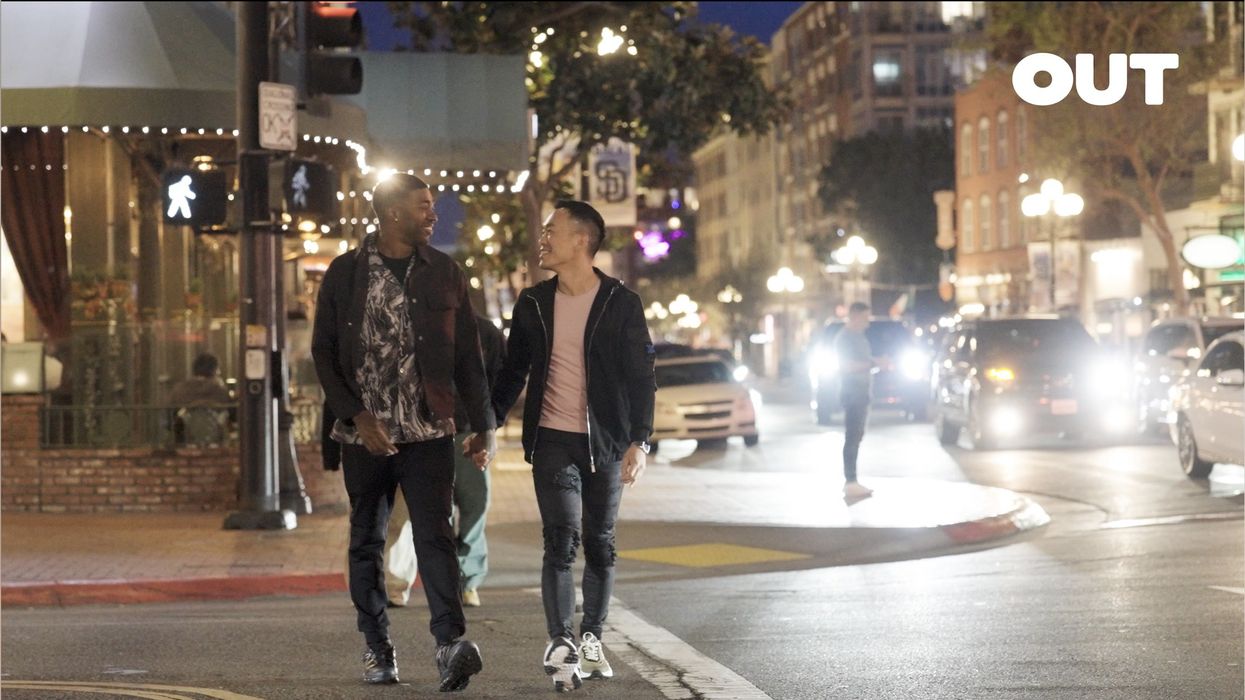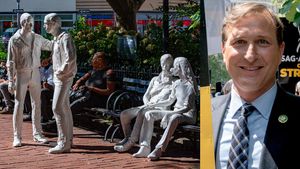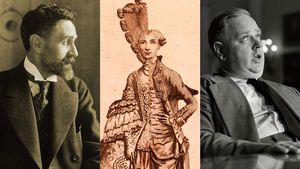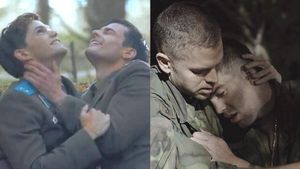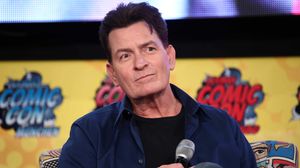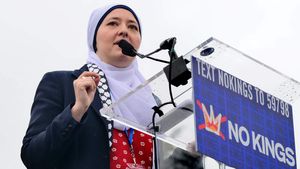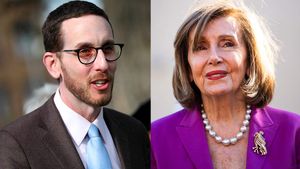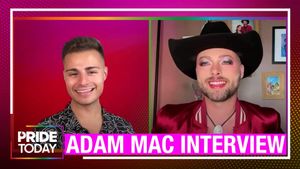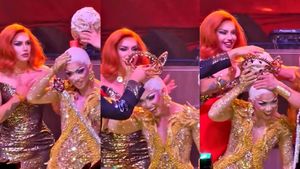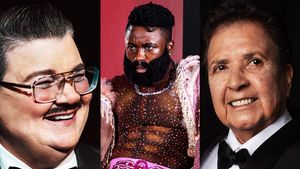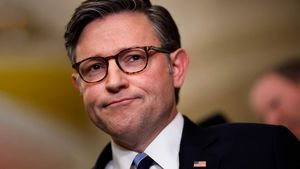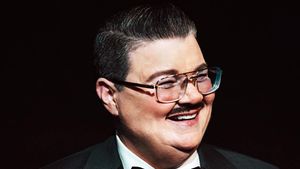In January, Rocco “Rocky” Sanabria, 17, sat at a table in the large, nearly empty council chambers. Across the floor was a collection of administrators and city council members, gathered to hear his testimony for gender-neutral bathrooms in New York schools.
“I wasn’t nervous at all,” he says. “If I have something say, I’m going to say it.”
This wasn’t the first time Rocky, a senior at Maspeth High School in Queens, spoke out on LGBT issues. When he was a sophomore in 2014, he also testified with other students for a more inclusive LGBT curriculum and school guidelines before New York City Schools Chancellor Carmen Fariña.
Thanks to that testimony—and the work of the LGBT Caucus, led by Council Member Daniel Dromm—the New York Department of Education hired its first LGBT community liaison, Jared Fox.
“There needs to be individual accountability for students and teachers,” Rocky says. “I felt the need to advocate for those of us who needed a voice because I’ve been lucky, where I’m surrounded by this wonderful life.”
Rocky has indeed been lucky, but as a student, he never completely escaped the stigma of being transgender. In fact, “transgender” is a label Rocky doesn’t feel fits him.
“I see myself as a boy. I’ve always been a boy,” he says. “I'm not a boy because I'm transgender, I'm only transgender because I'm a boy despite my anatomy. I’m Rocky first, trans second—or third or even fourth.”
Although born biologically female, Rocky knew from a young age he was different—as early as two years old. He told his mother when he was four. Then when he started elementary school, a psychiatrist had already diagnosed him with gender identity disorder—the precursor to today’s gender dysphoria. He and his mother met with the school and told the principal.
“I gave all my info—what the psychiatrist said, everything—to my elementary school. They turned around and used it against me,” Rocky says. “They referred to it as my ‘tomboy issues.’ They put me in special education classes.”
After being bullied in the bathroom, the school’s advice to Rocky’s mother was that he grow his hair out. “Then maybe I wouldn’t get bullied so much,” he says.
His middle school did more to stop the bullying, but Rocky soon saw how limited his teachers and school leaders were.
“My middle school was a lot more accepting. But it was still difficult to approach bullying. Most teachers or administrators couldn’t do any more than a lecture,” he says.
Rocky refused to go to the girls’ bathroom, and he was worried about bullying from other boys. “So my school told me I could use the nurses’ bathroom,” he says. “I just held it. I never once went to the bathroom while I was in school.”
Coming to Maspeth made life easier, but school wasn’t Rocky’s only challenge.
“I was 12 years old when I started hormone therapy, and I was 14 when I went on testosterone,” he says. “That was the same year I had my first double mastectomy. Unfortunately, I had to have a second surgery. That’s when they cut a main artery and I got really sick.”
He recovered and found at Maspeth a welcoming community of teachers and students. However, he still hadn’t escaped the bullying. That’s when Rocky realized he needed to take his message higher—to the Department of Education.
“My sophomore year, there was a guy who would follow me and my friends around—even follow us into the bathrooms,” Rocky says. “Despite how accepting the school was, I eventually had to bring it up with the Department of Education. It took a lot for them to recognize the problem, but when they did, they acted.”
He joined the panel in 2014 to testify for an LGBT curriculum because, in Rocky's own words, “school should be the one place to step back and comfort you.”
“I jumped at the opportunity to testify because as a teenager, you have these two obstacles,” Rocky says. “You are physically different from other guys—your anatomy doesn’t match your brain. And at a young age, you’re still trying to find words to explain yourself. You haven’t found all the answers to all the questions—from family, friends, teachers.”
Now, two years later, the city’s Department of Education is investing in a curriculum to help overcome those obstacles. And Rocky is living proof of what can happen when young LGBTs realize their full potential. The young man with “tomboy issues” is now student body president of his high school.
“As president, I want a safe school for everybody,” he says. “I became student body president because I wanted to be a part of the school. I wanted students to have the chance to judge and learn from me. I love to advocate for others. If parents don’t listen, somebody has to.”
The aspiring cinematographer and screenwriter has applied to 12 different colleges, and he included in his applications his own student film FACES, which tells the stories of queer and questioning students.
As graduation approaches, Rocky is enjoying the last weeks of high school before he moves away for school.
“I love to act, to hang out, to make jokes,” he says. “But if someone comes up and says, ‘I heard you were trans, please tell me more,’ I try to share what I know.” In just 17 years, that already appears to be quite a lot.
Watch FACES below:




































